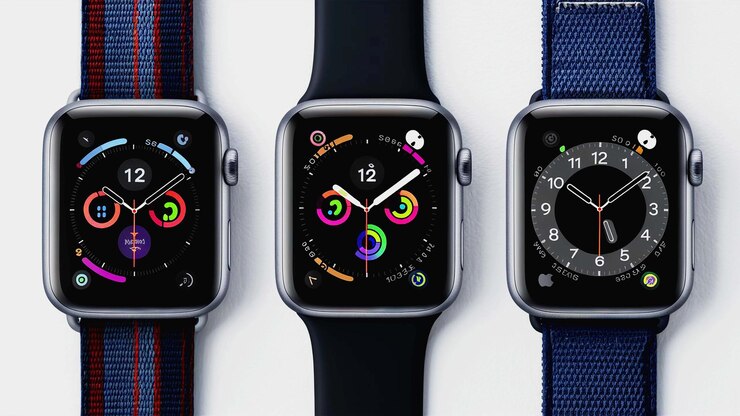Introduction
Technology is transforming lives, especially for people with disabilities. Technology can help break barriers, improve learning, and promote independence for individuals with Down syndrome. Specialized applications like Appfordown play a vital role in this transformation. These apps are designed to meet the unique needs of those with Down syndrome, providing tools that enhance communication, learning, and daily living.
In this article, we’ll explore the world of Appfordown applications, highlighting their benefits, key features, and how they are reshaping the lives of individuals with Down syndrome and their families.
Understanding Down Syndrome and Technology’s Role
Down syndrome is a genetic condition caused by an extra chromosome 21. It affects about 1 in 700 births worldwide, leading to various intellectual and developmental challenges. Individuals with Down syndrome often face difficulties with speech, motor skills, and learning. However, every person with Down syndrome is unique and has their strengths and challenges.
Technology, especially mobile apps, offers support tailored to these needs. Apps designed for individuals with Down syndrome provide resources for communication, learning, and everyday tasks. These tools empower users to achieve greater independence and improve their quality of life.
Key Features of Apps for Down Syndrome
Applications designed for people with Down syndrome have features that cater specifically to their needs. Below are some of the most essential features:
- Visual Learning Tools: Many individuals with Down syndrome are visual learners. Apps use images, videos, and interactive graphics to make learning more accessible and engaging.
- Speech and Language Support: Speech delays are expected in Down syndrome patients. Apps often include speech therapy exercises, vocabulary-building tools, and pronunciation guides to help users improve their communication skills.
- Routine Management: Keeping a daily routine can be challenging. Apps provide visual schedules, task reminders, and step-by-step guides to help users manage daily activities independently.
- Social Skills Development: Social skills are vital for building relationships, yet they can be difficult for people with Down syndrome. Many apps offer role-playing games and interactive scenarios that help users practice social interactions in a safe environment.
- Interactive Games and Learning Modules: Learning through play is highly effective. Many apps offer games that teach basic skills like reading, math, and writing in a fun way.
- Customizable Settings: Personalization is critical, as each individual has unique needs. Many apps allow adjustments such as difficulty levels and visual aids, tailoring the experience to suit the user.
- Parental and Caregiver Involvement: Apps often include features that let parents monitor progress, set goals, and customize content. This involvement ensures that the app is being used effectively.
Benefits of Apps for Individuals with Down Syndrome
Using apps designed for individuals with Down syndrome offers numerous benefits. Here are some of the key advantages:
- Improved Communication: Apps with speech therapy and picture-based communication tools help users express themselves more effectively. This enhancement makes communication smoother and boosts confidence.
- Better Learning Outcomes: Apps simplify complex concepts, making learning more accessible. Visual aids and interactive games cater to different learning styles, ensuring users grasp information more effectively.
- Greater Independence: Apps that support task management encourage users to be more self-reliant. Visual schedules and reminders help individuals complete everyday tasks independently, fostering independence.
- Enhanced Social Skills: Social skills apps provide a controlled environment for users to practice interactions. Users can better connect with others by learning to understand emotions and respond appropriately.
- Emotional Support and Confidence: Many apps are designed to be encouraging. They offer positive feedback and rewards, which help build self-esteem and motivate continued learning.
- Support for Caregivers: These apps offer invaluable support for parents and caregivers. Features like progress tracking and goal-setting provide peace of mind and help guide the user’s development.
Popular Apps for Down Syndrome
Several apps stand out for their innovative features and ease of use. Here are some of the most popular:
- Proloquo2Go: This app helps nonverbal individuals communicate through a symbol-based system. It allows users to build sentences and express their needs, making interaction more straightforward.
- Unique Words: This educational app improves language and cognitive skills through word-matching games. It helps users associate words with images, enhancing their reading and comprehension.
- Choice works: This app assists with daily routines by offering visual schedules and task reminders. It’s an excellent tool for staying organized and managing emotions.
- Speech Blubs: A speech therapy app that uses video modeling to engage users. It encourages them to mimic sounds and phrases, helping to improve speech.
- Touch and Learn – Emotions: This app teaches users to recognize emotions through interactive games. It helps improve social-emotional skills, which are crucial for everyday interactions.
How to Choose the Right App
Choosing the right app is essential and depends on individual needs. Here are some tips to help you make the best choice:
- Identify Specific Needs: Start by understanding the individual’s unique challenges, such as speech delays or social skills. Choosing an app that targets these needs will ensure better results.
- Try Free Versions: Many apps offer free trials. Testing these can help you decide if the app’s features and interface work well for the user.
- Look for Customization: Apps that allow customization can better meet users’ needs. Adjusting settings like difficulty levels or visual aids can make the experience more effective.
- Read Reviews: Checking user reviews and ratings can provide insights into an app’s strengths and weaknesses. Feedback from other parents and professionals can be constructive.
- Consult Professionals: Speech therapists, educators, and other experts can recommend apps that align with developmental goals. Their insights can guide you toward the best choices.
- Consider Privacy and Safety: Ensure the app includes appropriate privacy settings, especially if it involves social features or data collection.
The Future of Apps for Down Syndrome
The future of these apps looks promising as technology continues to advance. With AI and machine learning innovations, apps will become even more personalized. Real-time feedback and adaptive content will further enhance learning experiences.
Additionally, emerging technologies like virtual and augmented reality could provide immersive learning environments. These tools can offer new ways to practice skills in safe, controlled settings. Collaboration between developers, educators, and healthcare professionals will drive this progress.
Conclusion
Apps designed for individuals with Down syndrome are transforming how they learn, communicate, and engage with the world. These tools provide tailored support that addresses specific challenges, empowering users to build essential skills and gain independence.
The impact extends beyond the user, offering parents and caregivers valuable resources to support development. As technology evolves, the continued improvement of these apps will further enhance accessibility, fostering a future where everyone can thrive.




0 Comments